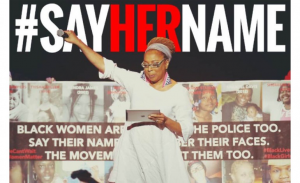By Benjamin Pomerantz

Today, on the top shelf of my bedroom closet in my childhood home in St. Louis, Missouri sit three stuffed animals that used to rest with me when I was younger: a piglet, a teddy bear, and a small bear that wore an even smaller NYU shirt. Like most children, I created names for my stuffed animals, and being the creative child that I was, I named my stuffed animals Piglet, Teddy Bear, and New Yorkie, respectively. (So original, right?!) I was also the kid whose favorite shape was a square, so the fact that I assigned those names to my animals shouldn’t come as a surprise. But the point that I want to get at is that I named my stuffed animals. Most kids do, albeit with more creative names. Children give names to their stuffed animals because to them, their stuffed animals are important to them. Parents give names to their children for the same reason—because they value their kids. We, as humans, use naming as a way to assign importance to people, pets, and even stuffed animals.
So, during my research for the Race & Racism Project, it was disappointing to read so many stories of Richmond’s history where key actors went unnamed. Over the past three weeks, I have read American City, Southern Place: A Cultural History of Antebellum Richmond by Gregg D. Kimball, as well as In Bondage and Freedom by Kimball and Marie Tyler-McGraw. Each of these books deals with Richmond before the Civil War, and contains many stories about the lives of black people, both free and enslaved, in Richmond. As part of the Race & Racism Project, and in partnership with Untold RVA, I read these books to find stories of black Richmonders engaged in acts of self-determination and resistance, because these stories often get suppressed by the white, Confederate-dominated narrative of the city’s history.
I have found it easiest to find instances of black self-determination and resistance within these books when the people involved in the stories are named. When people are named, it conveys a sense of importance to these people. For example, one story of black self-determination that was rather easy to find came from In Bondage and Freedom, in which it reads, “…the slave fiddler George Walker, described as ‘the best leader of a band in all eastern and middle Virginia,’ was hired out for parties in Richmond ‘by the week, month or job.” Here, since George Walker was named, it is clear that he, as an individual, is important to Richmond’s history. There are many cases, however, when black Richmonders go unnamed. In American City, Southern Place, the author writes that “One member of the [First African Baptist Church] congregation, a former slave who had purchased his freedom, complained to a Northern visitor that white Richmonders often implored strangers to visit First African Baptist Church.” The fact that the main character in this purchased his own freedom hints at a story of self-determination, and yet the story goes untold because the main actor is unnamed.
 In today’s world, there are still many underrepresented groups of people in the United States whose stories go untold, and many movements have surfaced to help bring those people’s stories to light, including #SayHerName, an online movement that strives to include black women in the narrative of police brutality against black Americans. According to Kimberlé Crenshaw, the co-founder and executive director of the African American Policy Forum and a leader in the #SayHerName movement, “Inclusion of black women’s experiences in social movements, media narratives, and policy demands around policing and police brutality is critical to effectively combating racialized state violence for black communities and other communities of color.” Crenshaw understands that in order to bring a broader justice to the issue of police brutality, the stories—and therefore the names—of black women who have fallen victim are just as important to the narrative as the stories and names of the male victims, though the men get more media attention than the women. Just as the Race & Racism Project and Untold RVA use the names and stories of black Richmonders to help create a more holistic representation of Richmond’s history, the #SayHerName movement speaks the names of black women who have fallen victim to police brutality, such as Alberta Spruill, Rekia Boyd and Shantel Davis, alongside names more well-known names like Mike Brown, Tamir Rice, and Eric Garner, in order to provide a more holistic narrative of police brutality in America.
In today’s world, there are still many underrepresented groups of people in the United States whose stories go untold, and many movements have surfaced to help bring those people’s stories to light, including #SayHerName, an online movement that strives to include black women in the narrative of police brutality against black Americans. According to Kimberlé Crenshaw, the co-founder and executive director of the African American Policy Forum and a leader in the #SayHerName movement, “Inclusion of black women’s experiences in social movements, media narratives, and policy demands around policing and police brutality is critical to effectively combating racialized state violence for black communities and other communities of color.” Crenshaw understands that in order to bring a broader justice to the issue of police brutality, the stories—and therefore the names—of black women who have fallen victim are just as important to the narrative as the stories and names of the male victims, though the men get more media attention than the women. Just as the Race & Racism Project and Untold RVA use the names and stories of black Richmonders to help create a more holistic representation of Richmond’s history, the #SayHerName movement speaks the names of black women who have fallen victim to police brutality, such as Alberta Spruill, Rekia Boyd and Shantel Davis, alongside names more well-known names like Mike Brown, Tamir Rice, and Eric Garner, in order to provide a more holistic narrative of police brutality in America.
When we look at stories of Richmond’s history, or of any history, it is important to realize that many of the people involved in that history are not recognized because their names are not given. It takes extra effort to find the stories of black people in Richmond when they go unnamed, or are referred to merely as “slaves” or as “free blacks.” But among those who are labeled as such are real people with real names and real stories, and who is to say that their stories are any less important?
Benjamin Pomerantz is a junior majoring in American Studies and minoring in both Rhetoric & Communication Studies and History. This summer was his first time working with the Race & Racism Project, and he was very happy to be able to join the team for this summer as an A&S Summer Research Fellow.
